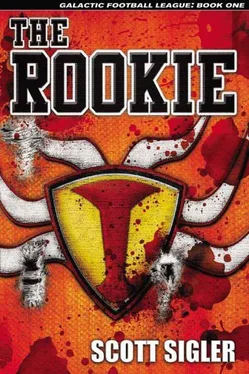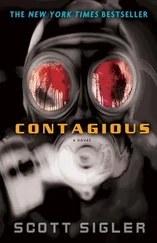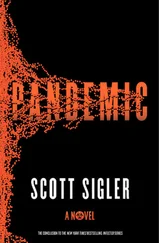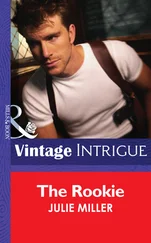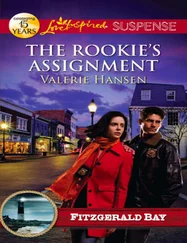Quentin nodded as he moved to the huddle and called the play. The team seemed a bit listless in the huddle, as if they had already conceded defeat. The only way to get them going, Quentin knew, was with a sustained drive or a big play. He broke the huddle and lined up. The Pioneers still showed a run defense, leaving Hawick and Scarborough covered with only woman-to-woman. Quentin calmed himself, knowing he had to be cool to take advantage of this opportunity.
“Blue, fifteeeeeen! Blue, fifteen… hut-hut!”
He dropped straight back, eyes following Hawick, over to Scarborough, then back to Hawick again. She already had a step on her defender. Quentin stepped up to throw, but the pocket collapsed almost immediately. A huge Ki lineman bore down on him from the left. Quentin dodged to his right, still looking downfield, but he sensed pressure on that side as well. He stepped up into the pocket, where Kagan met him head-on with a hit that knocked Quentin flat on his back. It was like being smacked with a wrecking ball. His eyes scrunched in pain. Quentin heard the continuing “ooohhh” of the crowd as the holo-monitors in each end zone replayed the hit.
With second-and-long, Hokor called another pass. Kagan blitzed again. Quentin didn’t have time to throw downfield and had to settle for a quick five-yard strike to Warburg. The Krakens tried a draw on the next play, and got nowhere. Defeated once again, the offense ran off the field as the punt team came on.
Quentin took off his helmet and threw it at the bench in disgust. He couldn’t make things happen if he didn’t have time to throw. He’d studied the Pioneers games over and over again — their defensive line wasn’t anything special. He had to get his O-line motivated. He stood and started walking down the bench to where the Ki linemen were huddled in their big ball, but stopped — Donald Pine was already in front of them.
Pine leaned heavily on his crutches, their tops digging into his armpits, leaving his hands free to flail about. He wildly gestured first to the linemen, then to the field, then up in the air, then back again. Pine looked furious, madder than Quentin had ever seen him. Pine was screaming them up one side and down the other, and Quentin didn’t have to wonder what for.
Why is he doing that ? Quentin thought. That’s my job.
Why was he doing it? Because the linemen listened to Pine.
Once again, Pine seemed to be helping Quentin, not sabotaging him. Had he done the same thing in making Denver offer help for passing practice?
• • •
AT HALFTIME, the game seemed to have slipped away. The Krakens were down 21-3, their only score coming on a nice 52-yard field goal by Arioch Morningstar. Quentin saw possibilities on almost every play, or thought he saw them, but he wasn’t about to alter Hokor’s calls. Maybe it was like before, like in the Hydras game, and Hokor knew something that he didn’t. He’d made the most out of the few opportunities that came his way, hitting five of his eleven passes for 82 yards. The completions were nice, but he spent most of the first half flat on his back either knocked down after the pass or dragged down for one of the three first-half sacks. That was more sacks than he’d suffered his entire season with the Raiders. No touchdowns, and one interception when a Ki tentacle deflected his pass at the line of scrimmage. He had also scrambled for 22 rushing yards — far more out of necessity than choice. On the Krakens’ home field he could have ran for much more, but the Pioneer field’s slippery footing made it hard for him to make sharp cuts.
The visitors central locker room was filled with beings dressed in orange leg armor with black trim, and orange jerseys stained with streaks of oily yellow. Hokor stood in the middle of the circular room, his fur extended to its full length. He ranted and raved about the offensive line’s poor showing, but much like Pine’s lecture on the sidelines, nobody seemed to care.
• • •
THE PIONEERS WALKED away with the game, winning by an embarrassing score of 35–10. Fayed had managed one big play, breaking three tackles for a 24-yard run and the Krakens’ only contribution to the weekly ESPN highlight reel.
Quentin undressed at his locker, feeling neither happy nor sad about the outcome. He’d played as well as could be expected under the circumstances, the circumstances being that the offensive line didn’t really give a crap about protecting him. He’d finished the day 15-of-35 for 186 yards, with 37 yards rushing. His body felt like he’d gone ten rounds in the octagon with Korak the Cutter. He’d thought he’d taken some blows in practice, but now he knew that his own defenders had been holding back, if only just a bit.
The Krakens changed in almost total quiet. They had one win, two losses, and were already two games out of first. Their chances of moving up to Tier One seemed near nil. Nobody spoke, except for Yassoud, who went from player to player, asking who was up for a night in Port Whitok’s gambling district.
As Quentin pulled off his chest armor, Donald Pine hobbled over, the crutches making him awkward as he slowly sat.
“You played well out there, Q.”
Quentin shrugged. “Not that any of my so-called teammates would notice. Or care, for that matter.”
Pine nodded. “Oh, they noticed. But you’re right, they didn’t care. I told you before, there’s more to being a quarterback than skill and talent.”
“Listen, gramps, I don’t need a lecture. Now take off.”
Pine didn’t move. “You do need a lecture, Quentin. So did the offensive line, but I already gave them one. Several, as a matter of fact.”
Quentin started to speak, then stopped. He remembered Pine on the sidelines, arms waving like a madman, yelling his head off at 3,000-plus pounds of offensive line. No one else had done that. Not Warburg, not Hokor, not Quentin himself. Just Pine.
“Okay,” Quentin said quietly. “Say what you’ve got to say.”
“Q, you’ve got all the talent in the world. It pours off you like stink from a skunk. Your brain works overtime — I see you come up with play adjustments that are almost as good as those of another Krakens quarterback I know.” Pine smiled with the joke. Quentin felt some of his stress fade away — Pine’s smile had a way making people feel comfortable.
“Yeah,” Quentin said, “that Yitzhak is pretty damn creative.”
Pine laughed. “Right, right. So you’ve got all the tools, but as you saw today, the greatest general in the world can’t win if the troops won’t go to war. The Ki linemen are not some random beings from their culture, they are soldiers. I’ve seen normal Ki citizens, have you?”
Quentin shrugged. “Just a few on the streets in Ionath.”
“And did they look violent? Did they look strong?”
Quentin thought back, then shook his head. They didn’t look violent at all, In fact, they were Human-sized, weighing probably 250 pounds or so, half the weight of a Kraken lineman. He hadn’t realized that fact until this moment.
“The difference between citizen and warrior isn’t as dramatic as it is in the Quyth culture, where there’s a completely separate sub-species built for fighting, but it’s there. Ki soldiers are selected from a very young age, like the equivalent of three years old in Humans. They’re trained from that time in how to fight, how to kill, how to endure pain and hardship that Humans couldn’t come close to handling. Most of our linemen have taken sentient life, Quentin, some with their bare hands. So to speak. All of them participated in ground combat at one point or another.”
“And that’s supposed to excuse them for piss-poor blocking?”
Читать дальше
